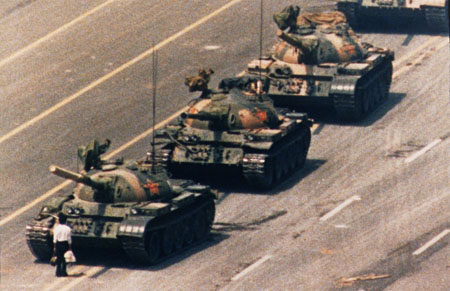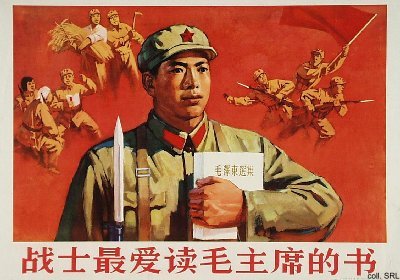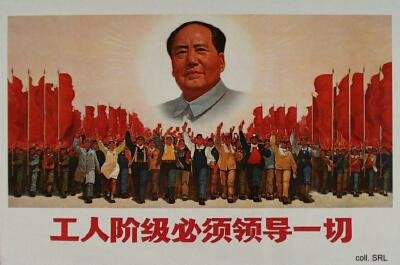Righteous Indignation
Here's a pretty old legacy post from the blog archives of Geekery Today; it was written about 20 years ago, in 2005, on the World Wide Web.
Like the Great Americans at Riding Sun (2005-04-05), The Jawa Report (2005-04-04), Michelle Malkin (2005-04-05), et al., I am outraged at the obvious, slavish political bias of the mainstream news photography elite. The 2005 Pulitzer Awards in Breaking News Photography are only the latest example of their anti-military agenda and their love for anti-government insurgents. I mean, check out the World Press Photo Award Winner
for 1989:

Charlie Cole, USA, Newsweek
Besides being very possibly staged by a reporter who was working with insurgents, this photograph also shows the People’s Liberation Army troops in a negative light. This photo portays the Chinese government as tyrannical and likely caused untold anti-Chinese inflammation. Equally telling is what the photo doesn’t show. No photos show Chinese troops rebuilding their homeland. No photos show People’s Liberation Army troops playing with kids in the street. No photos show the results of the Great Proletarian Cultural Revolution. No photos show the thousands of freed prisoners from Imperial Japan’s tyrannical rule.
Where is the balance? Why didn’t the so-called World Press Photo Award
give equal recognition to visually stunning works like these?


Is that the best the World Press Photo committee could find? Did they even bother to discuss the issues raised by The People’s Daily before bestowing the prize upon Charlie Cole? Were they ignorant of the controversy? Or did they simply decide in the end that it didn’t matter?
Update: More insurgent-loving sedition from the hate-China-first crowd can be found from Enemies of the People like feministe (2005-04-06) and Rox Populi (2005-04-06).
I’m more than a little bemused that the term “terrorist” is used interchangeably with “insurgent” in the blogs you linked. I guess if you live in a reality where an invading force is liberating a country, pretty much anything that gives you actual facts rather than regurgitating official statements is “liberal media”.
Your post only makes sense if you think the U.S. is the moral equivalent of communist China, and the pro-democracy protester blocking a line of Chinese tanks is the equivalent of fundamentalist Islamic insurgents murdering Iraqi civilians in the streets.
I don’t.
Gaijink:
Actually no. Radgeek�s post does not require moral equivalency. Even if US is not as bad as communist China, that hardly means that what they are doing in Iraq (an illegal war, ocupation, tortures, all based on lies and misguised interests) is acceptable. And Radgeek�s point is not that the US is an equivalent to China, is the the US is using propaganda to cover their own wrongdoing, as Comunist China did and does. That is the point of the post: propaganda. And propaganda is bad ALWAYS, cause it is a way to lie.
Well, no. I suppose that’s one way to make sense of the post, but it is (as you note) one that requires you to believe things that are obviously false, and it’s also one that misses the deeper point. The post makes perfect sense if you realize that awards given out for press photography ought to be based on evaluations of the photograph, not moral or political evaluations of the situation depicted in the photograph, or how useful the photograph is to war aims, or what you imagine to be the team loyalties of the person who took it.
If you think that the results ought to be tilted in order to avoid (as the Jawa Report has it) or to make one side or the other look more (as you would have it), or out of some imposed ideal of political in the results, then you are asking that the award be used for propaganda rather than recognizing artistic and journalistic merit.
Now, maybe you think that in wartime the press establishment ought to modulate its coverage in order to comply with government propaganda aims. Maybe you even think they ought to act like that in peacetime as well.
I don’t.
Well, you guys are certainly being civil in disagreeing with me. That’s much appreciated; thanks.
I actually agree with both of you that the Pulitzers should not be given to photos based on their propaganda value, or for the “moral or political evaluations” of what they depict.
That’s why I was disappointed to see a collection of 20 photographs that, taken together, seemed to send a very clear political message against the U.S. presence in Iraq.
I doubt very highly that these 20 photographs were selected solely on the basis of their journalistic or artistic value. They seem to have been selected (and others of equal or greater merit no doubt ignored) to make a point.
I don’t think we should be told lies about Iraq. We need to be reminded of the human cost of war. But we also need to see the accomplishments of our troops, and the successes they are achieving.
Presenting a one-sided negative view of the situation in Iraq is just as misleading as presenting gung-ho propaganda would be. In short, I don’t think the results “ought to be tilted”; I think they actually were tilted.
Also, it should be clear, but I’ll just emphasize here, that I am not calling for reality to be “balanced” with propaganda. I’m calling for reality to be balanced with other aspects of reality.
That’s why Chinese propaganda posters (aside from not even being photographs!) don’t deserve a photojournalism award. Neither would a staged depiction of supposedly genuine events, or a photo that had been digitally altered to show things that never occurred.
If there had been (just to hypothesize here) a photo of a Chinese soldier at Tiannmen square helping a little girl find her parents lost in the crowd, or something heartwarming like that, then (assuming it wasn’t staged) it should have been considered for an award along with the famous photo of the guy blocking the tanks. Both reflect aspects of what was actually going on.
Pure government propaganda, however, does not.